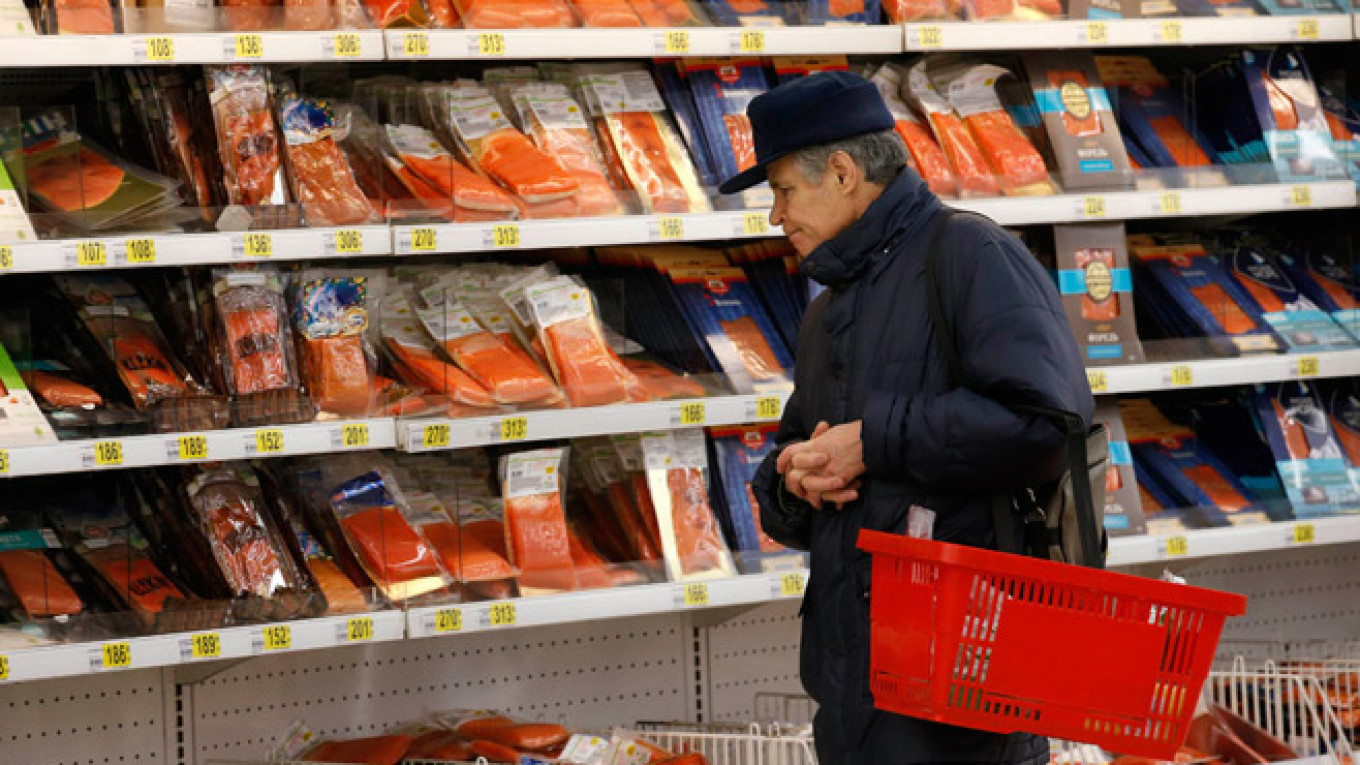Most Russians say they have noticed an increase in the cost of basic foods in the last two months, according to a poll released Thursday, as the ruble's meltdown and a wide-ranging ban on many Western food imports pushed overall inflation past 16 percent in January.
Among respondents to the poll conducted by the state-run Russian Public Opinion Research Center (VTsIOM), 91 percent said they had seen a rise in fruit and vegetable prices, 90 percent had noticed a rise in sugar prices and 89 percent said meat had become more expensive.
Prices for these products rose 40 percent, 67 percent, and 24 percent, respectively, since January last year, according to state statistics service Rosstat.
Inflation on food items has accelerated since August, when Russia introduced a one-year ban on food imports from countries that had sanctioned Moscow over its role in the Ukraine crisis, including European Union nations and the United States. The ruble's collapse of over 40 percent to the U.S. dollar since last summer, spurred by the falling oil price and tough Western sanctions, has also boosted inflation on food.
Of those polled, 87 percent said dairy product prices had risen, and 85 percent said bread prices had increased.
Those goods have seen respective price rises of 15 and 11 percent year-on-year, according to Rosstat.
Asked if they had begun to economize in response to rising inflation, 20 percent said they had started buying cheaper goods in the past month and 23 percent said they had bought less food or stopped buying certain items.
Some Russians may even be crisis hoarding: 17 percent said they had been stockpiling food since September, shortly after the food import ban was introduced.
The poll was conducted on Jan. 31 and Feb. 1 among 1,600 adults in 46 regions.
The statistical margin of error was no more than 3.5 percent, the polling agency said.
A Message from The Moscow Times:
Dear readers,
We are facing unprecedented challenges. Russia's Prosecutor General's Office has designated The Moscow Times as an "undesirable" organization, criminalizing our work and putting our staff at risk of prosecution. This follows our earlier unjust labeling as a "foreign agent."
These actions are direct attempts to silence independent journalism in Russia. The authorities claim our work "discredits the decisions of the Russian leadership." We see things differently: we strive to provide accurate, unbiased reporting on Russia.
We, the journalists of The Moscow Times, refuse to be silenced. But to continue our work, we need your help.
Your support, no matter how small, makes a world of difference. If you can, please support us monthly starting from just $2. It's quick to set up, and every contribution makes a significant impact.
By supporting The Moscow Times, you're defending open, independent journalism in the face of repression. Thank you for standing with us.
Remind me later.


